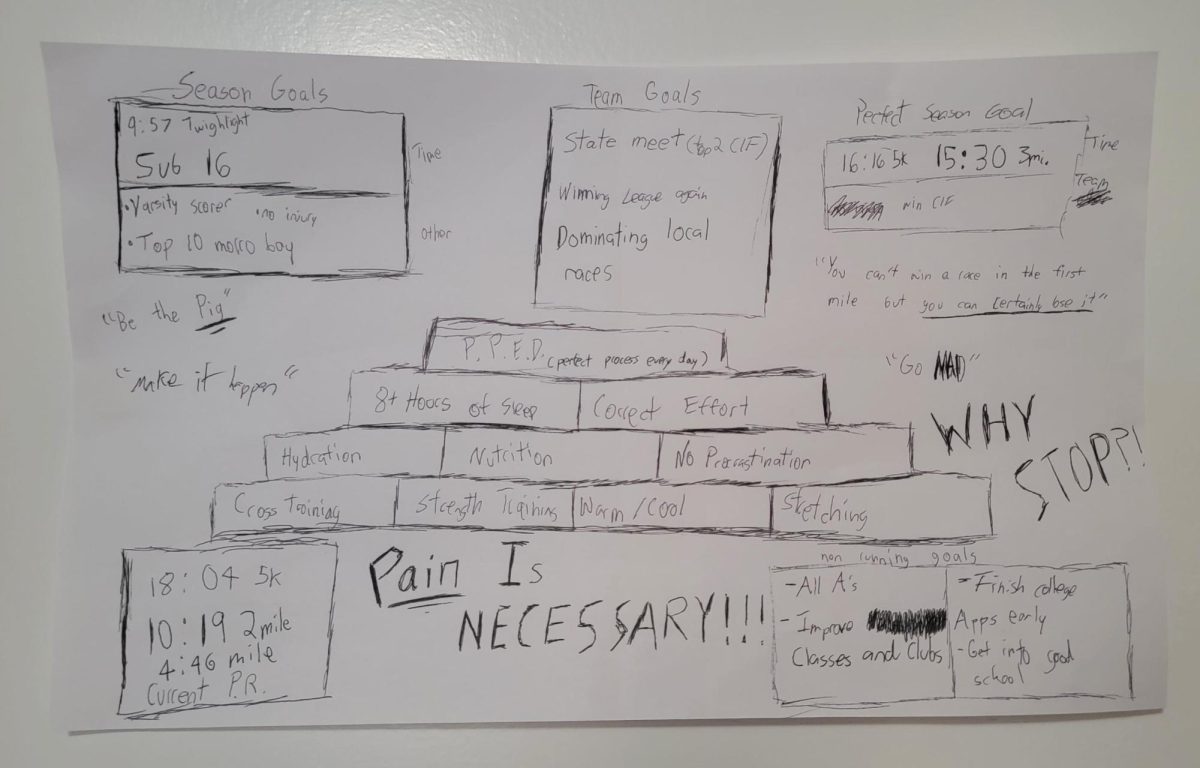Should San Luis Obispo High School go to the semester system or stay on the trimester system? This was the question at hand at a Conflict Resolution Team (CRT) meeting on September 14, where San Luis Coastal Unified School District Superintendent Doctor Eric Prater and Assistant Superintendent Rick Robinett gave a presentation on the pros and cons of the two scheduling options. It was made clear in the meeting that there is no perfect solution for the issue, although a few options were discussed.
Two of the main problems brought up by Robinett were how, “Advanced Placement seminars are taking the place of “real” electives, and how there is inequity within our school as well as our district as a whole.”
Many of the teachers at the meeting seemed opposed to the ideas and potential solutions being presented. One argument had to do with our school’s success academically, as well as in our elective programs, such as automotive technology, which has won many national awards. Academic achievement and student test scores are statistically higher at SLOHS compared to Morro Bay High School, which is run on the semester system, making many of our staff question the purpose of the meeting. If our school is more successful using a trimester system than Morro Bay is using the semester system, why would we change? A question similar to this was asked by a staff member and the answer to it, along with many previous and forthcoming questions throughout the meeting, was simply, “inequity.”
“I didn’t feel like the meeting was about trimesters or semesters, at least the way it was presented. Our superintendent has concerns about inequities being brought about by the current way we offer classes,” said English Learners /Advancement Via Individual Determination teacher Rita Delkeskamp.
This seemed to be a theme as our superintendent, Prater, took over the question portion of the meeting. After a few too many occurrences of the word, one staff member decided to ask what he meant by this and to clarify. The clarification that Dr. Prater presented explained that through data analysis and thorough research, he and Robinett have seen that there is an issue within our school relating to the correlation of ethnicity and class difficulty. Robinett stated that there are significantly less “brown” students in AP and honors classes than there are in regular or intermediate classes. The use of the term “brown”, although not intended to be offensive, didn’t sit right with the staff.
One point brought up was that when teachers voted to implement the trimester years ago, they agreed to teach more classes per year than they were required to.
“Those of us who voted for the trimester did so because we wanted students to have fewer classes per trimester so they wouldn’t be stressed out and have a lot of homework,” said Delkeskamp.
Senior Vincente Rivas said, “I like trimesters because they align with sports. It’s an easy transition from each trimester with sports because it matches up with your schedule pretty well.
Our Opinion:
As time has gone on and classes have evolved, the trimester that was voted upon years ago ceases to exist. This is mostly due to Advanced Placement and math classes. Most AP classes now have an optional third trimester seminar, which most choose to take. This, along with Algebra one and Geometry now requiring three trimesters, brings to light Prater’s previous answer of “inequity”. The trimester system was set up so that two trimesters equals one year of instruction. So technically, having three trimesters of math or an AP class would mean that our students are receiving one and a half years of instruction for one course. This isn’t seen as an issue by most of our staff, and is an obvious positive relating to testing and academic achievement, yet some deem this to be unfair. Sports are seen as unfair because they take away academic opportunities for students. Athletes often have to miss parts of fourth period to go to sporting events.
This unfairness can be seen in our elective programs. Students are choosing to take seminars, or being forced to take math the entire year, blocking many electives out of their packed schedule. One suggestion made was to “purify the trimester”. By going back to the original format of the trimester, we would eliminate this elective bias. However, this process wouldn’t be easy, and many other subjects would have to be compromised.
The meeting’s purpose wasn’t to force the staff to choose which they prefer for an impending vote, yet there might be one in the future. It was to introduce these ideas to our staff and have them talk it over and hopefully see a solution for the future.
Written by Karly Bonzi and Rae Odom.
































